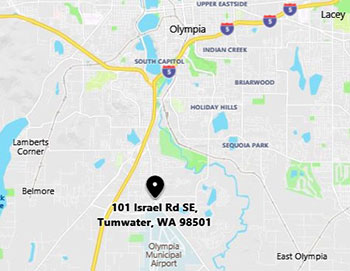Background
Poorly managed livestock manure and other domestic animal waste can present human health and environmental health risks, including contamination of water resources. RCW 43.20.050(2)(c) charges the Washington State Board of Health (Board) with unique responsibility and authority to adopt rules and standards to prevent, control, and abate health hazards and nuisance related to the disposal of animal excreta.
Other state agencies have complementary authority, but no agency shares the Board’s charge to adopt animal waste standards to protect health and sanitation. Authority of other state agencies includes regulation of certain livestock operations, manure management, and pollution control. WAC 246-203-130, Keeping of Animals, serves as the Board’s rule on the handling and disposal of animal waste. With language dating back nearly a century, the rule is overdue for an update to better support local health jurisdictions when responding to animal waste problems.
Proposed Rule
Revising the rule title to Domestic Animal Waste, the proposal includes standards to:
- Avoid unsanitary accumulations of waste in containment areas
- Prevent contamination of other people’s property, drinking water sources, and surface water bodies with potential to affect human health
- Promote safe handling and disposal of non-livestock waste
- Promote safe stockpiling of livestock waste
The standards in the rule focus on key control points that mainly say: don’t let waste accumulate and don’t pile it in ways and places that can create a problem.
Livestock vs. Non-Livestock
This proposal addresses both livestock and non-livestock waste but treats them differently. For livestock such as horses and cattle, the proposal promotes safe stockpiling of waste. For non-livestock such as dogs and cats, the proposal promotes safe handling and disposal of waste.
What’s Impacted
The rule would apply to individuals and businesses that involve animal keeping, such as dog kennels, horse stables, and livestock producers. The rule is not an operational Board rule with ongoing implementation. Instead, it provides people with updated “dos and don’ts” for basic waste handling. Most people properly manage animal waste. However, occasionally there are impacts or problem properties where local health is asked to respond. In keeping with current practice, the Board believes enforcement of the updated standards would be rare and reserved for situations where there are public health risks.
What’s Not Impacted
The proposed waste rule does NOT regulate manure composting, does not apply to diffuse animal waste sources such as trail riding, and does not apply operational rule requirements (e.g., permits, inspections, record keeping) to any businesses or facilities. The proposed rule also does not conflict with Right to Farm in Washington. The proposed rule helps to define good practices that prevent and abate nuisance and health hazards.
Process
Efforts to modernize the Keeping of Animals rule began in 2009, when the Board received a petition to revise the rule. The Board elected to explore ways to modernize the rule. Work on the rule progressed and stalled at various points in time, regaining momentum in 2018 with the completion of a background report and policy recommendations for the rulemaking. The Board filed an updated rulemaking form—a CR-101 Preproposal Statement of Inquiry—in 2019 to better align the rulemaking with Board policy direction. In March 2022, the Board filed a CR-102, Proposed Rule, for public review and comment.
Next Steps
A public rules hearing will take place on June 8, 2022 via Zoom. Verbal testimony on the draft rule will be taken. You can access and register for the online hearing here: https://us02web.zoom.us/webinar/register/WN_6vqdRyUmTamyb61z3wCSBA


